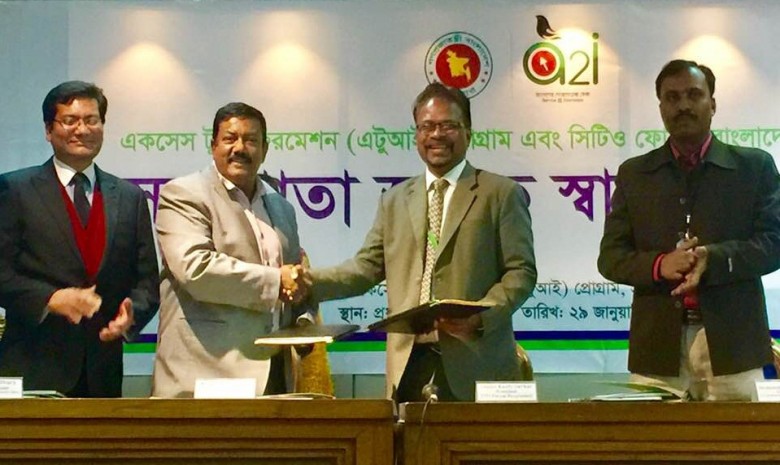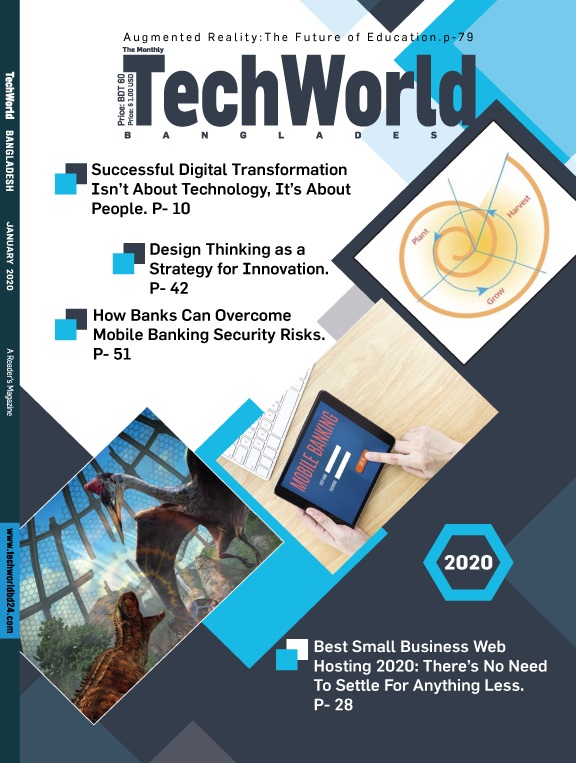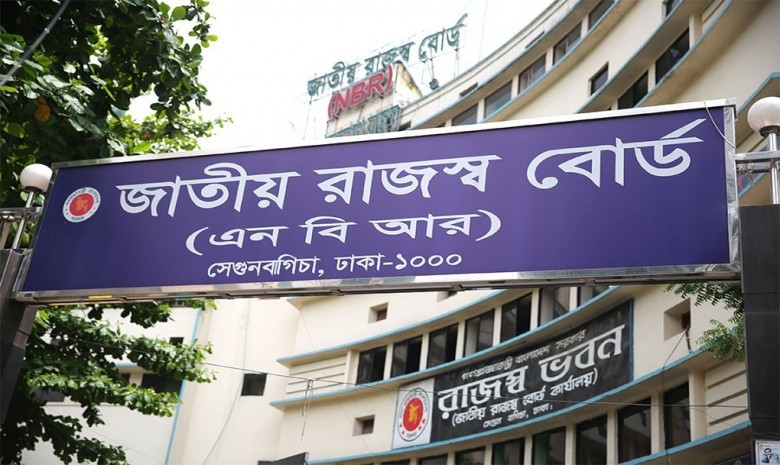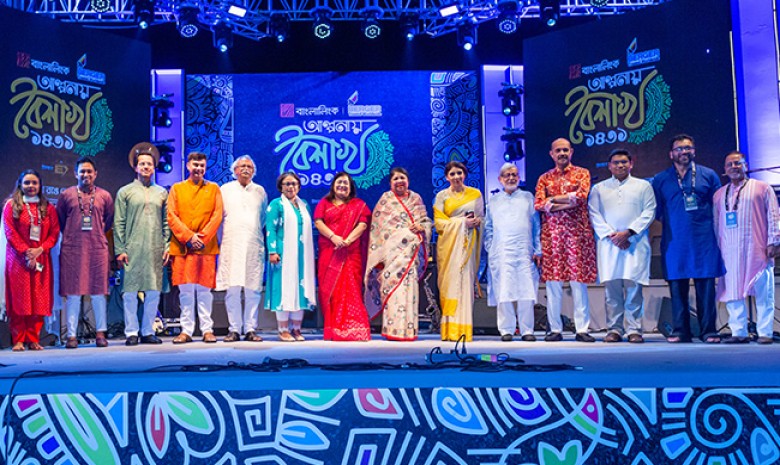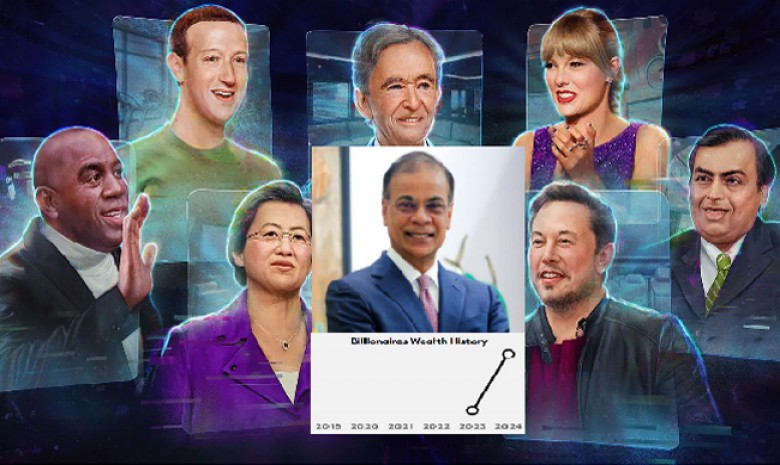Imagine a day in the near future, when a farmer in a village would remotely monitor the reproductive health of his cattle through his mobile phone and take necessary measures. Imagine yourself waking up in the morning to find the week’s grocery delivery at your doorstep as your refrigerator has already ordered them online. How about an SMS from your backup IPS informing you that it badly needs an overhaul!
These imaginations are in the brink of becoming realities. Nearly a decade ago, our government declared its great ambition to build a Digital Bangladesh. We have made amazing progress together where both government and private sectors have been playing their respective roles. As mobile phone operators, we are humbled yet proud to make our make in realizing this grand vision.
The positive impact of mobile telephone to the economy of Bangladesh is already proven reality. Access to the mobile internet also has a similar impact on the economy. According to a study by Deloitte, a 10% increase in mobile penetration increases Total Factor productivity in the long run by 4.2%. While 10% increase in mobile penetration increases per capita GDP by 0.15%.
Bangladesh is the birthplace of numerous cases of innovative use of mobile phones, which helped to improve productivity, for example – a Union Council in Chittagong, is using mobile tracking service to ensure the presence of the government school teachers in their respective schools.
The Rise of the Mobile Internet
Mobile Internet, especially since the launch of 3Gin Bangladesh, has opened up the development floodgate by providing access to information and next generation communications. Ever decreasing price of smartphones and access to the internet has enabled many rural communities in Bangladesh to embrace the power of a digital lifestyle. Within four years, the number of internet users jumped from twenty million to seventy million. Although the internet at present is mostly being used for social media purposes, it is also paving the way for the users to adapt more advanced digital services.

Besides aggressive expansion of mobile internet across the country in the last few years, the mobile operators undertook huge efforts for large scale awareness and education initiatives (e.g. Grameenphone Internet Utshab). A large number of youngsters from remote towns have taken up freelance jobs, making Bangladesh one of the largest destinations for online outsourced talents.

At present, over 90% of all the users in the country use the internet through their mobile devices. This trend will continue and smartphones powered by mobile internet will be considered the key platforms to deliver digital solutions to the end users.
Digitalization-Leading to Service Innovation
Digitalization, even in its early stage in Bangladesh, is helping entrepreneurs and businesses bring a wide variety of service like government services, health, agriculture, education, e-commerce, entertainment, citizen services, loT and so on to consumers.

In Bangladesh, internet based businesses are sprouting fast. The rise of mobile internet has also encouraged mobile operators to transform themselves as digital service providers in many areas. Mobile operators are constantly coming up with innovative digital service in different verticals, either developed in-house or in collaboration with both local and global partners.
Digitalizing Core Telecom Service
Transforming Key telecom services into delightful digital experiences has a core focus of all the mobile operators in recent years. All the operators have launched their digital care apps which now offer most of the user interactions online as opposed to previously requiring physical transactions or the user’s presence.
These e-care apps allow users to complete all the major customer journeys sitting at their homes. It also reduces the need for making frequent calls to the call centers for generic telecom related queries to a great extent. For example, Grammenphone’s award winning MyGP app has gained tremendous popularity because of its simplicity of use and relevance to the end users needs.
Digital Streaming- Shaping up the Future of Entertainment
In recent years, mobile operators have led a new era of digital entertainment which revived the local media industry from its constant struggle with rampant piracy. Grameenphone launched GP Music which is regarded as the largest local music platform in the country whereas Robi has introduced Yonder Music which offers a large collection of international music for the local listeners. These digital platforms aim to secure the industry with a strong protection from piracy while letting the artists and producers earn a fair share from their creation.
Video entertainment has also become a key offer by digital technology. Grameenphone’s latest video streaming application, Bioscope, offers live TV to its users anywhere, anytime. Most importantly, users can also enjoy the programs they have missed, thanks to its cloud technology. The other operators also have joined the league with their innovative video services e.g. iFlix, Banglaflix and others offer loads of digital video contents at their users fingertips.
Internet Education- To Bring More Equality
Internet is a great equalizer, which is truer for Bangladesh. Internet, strengthened by mobile connectivity, provides an opportunity to offer new ways of teaching and learning that ultimately will improve performance and results. Robi’s 10 Minute School is one such initiative that uses social media to impact study materials, while Grammenphone’s Online School uses a video conferencing platform to provide education to primary school children. Moreover a large volume of contents from the world- famous Khan Academy has been localized with the help of Grameenphone and now made available for free to the end users.
Mobile Health Services – For a Stronger Bangladesh
In Bangladesh quality healthcare remains inaccessible to many, particularly the marginal population. This barrier can be broken down by using the most accessible channel out there - mobile network. Mobile can increase the quality, reduce the cost and extend the reach of healthcare to benefit millions.
Tonic, the digital health service from Telenor Health, is already connecting the dots for many in need of healthcare. Whether a person need health information, appointment and consultation with doctor of even needs a health insurance to pay bills at hospitals - Tonic is providing all these services via mobile phone.

Digital Financial Service – Requires More Inclusive Regulations
In the last five years, Bangladesh has experienced a profound development in money transfer from one place to another. Operators like bKash and Rocked are riding on the existing mobile network to provide their services. Although they have gained large user base along with coverage, there are significant challenges to attain real financial inclusion which is only 34% as of 2016 according to Intermedia. The number of financial services offered by these operators is limited. The MFS market has systematic monopoly with ‘Enter Barrier ‘, Concentrated among two operators while the absence of interoperability makes the situation even worse.
To address the citizen need of a secure, affordable and convenient digital payment and DSF and products, the government can facilitate an enabling regulatory environment to induce competition, investment and innovation that will address both the financial inclusion and DFS ambition of Digital Bangladesh.
Online Marketplace- Becoming the New Reality.
With more than 60 million internet users and around 30% smartphone penetration, this is the perfect enabling situation for e-commerce industry of Bangladesh which already has more than 500+local online commerce sites & marketplace that are selling everything from everyday grocery items to high-end electronics goods.
Facebook is also enabling home entrepreneurs to leverage this platform and reach out to customers within their own network. Early ecosystem of delivery partners, payment aggregators, mobile financial solutions like bkash & basic ‘cash on delivery is in place to drive the growth. This high growth sector is coming in notice of global players such as Alibaba & Amazon and also large local organizations hat want to participate in this growth arena.
To make the most of this arena what is required is the inclusive regulatory guideline & policy framework to allow foreign investment, knowledge & skill set to flow in while protecting the interest of the local community. The trade body e- CAB is also working closely with the government to create a level playing field to enable this thriving & high potential industry to reach more than a billion dollar status by 2020.

Startup Ecosystem – A Major Enabler of Digital Growth
A key component of digital transformation of a country is local innovations. Put it simply- local entrepreneurs addressing our everyday demands using technology that we interact with everyday. The startup ecosystem of Bangladesh is young and has just started to take shape.
Presently e-commerce or service based startups are the major drivers enabling the digital growth. Startups like bikroy.com, daraz.com.bd, pickaboo.com, priyoshop.com are the largest e commerce revenue drivers with sheba.xyz, CMED and a few notable pushing hard the services industries into digitalization with lot of success. Platforms like Grameenphone Accelerator are supporting the ecosystem though major growth.
The Future of Mobile Technology
In the future, Internet of Things (loT) will bring more efficiency in businesses and will transform everyday life. Currently, its use is limited to Vehicle Tracking and some cases, Security Surveillance. But it has greater potential and some of the use cases are now being piloted. loT is already being tested to provide flood warning to the farmers in Kurigram. One particular organization is upgrading its electric generators with loT so that they can directly provide information to the vendor when they need overhauling.
Million of Electricity, Gas or water meters can be connected to the smart grid, which will ensure efficient use of resources. Connected devices will help businesses to enhance efficiency and productivity. Smart homes and offices, where connected devices will do many things without human intervention are also waiting just around the corner. A number of Bangladesh start-ups are already engaged in the development process for such loT applications.
Data driven solutions will be another major driver for our digital transformation journey. Mobile operators capture a huge amount of data which could be used for different beneficial purposes for example- it could be used to develop solution for problems ranging from epidemics to natural disasters.
New technologies, such as Augmented Reality, Artificial Intelligence, Virtual Reality, Cloud Computing will have a tremendous growth in the next decade.
Digital Transformation Challenges
Embracing digital technologies sound exciting, but a true transformation will require proper regulatory and policy support. Despite the government’s genuine intentions, there are several significant barriers in providing digital service in Bangladesh
Cloud Hosting is a necessity to provide digital services, but our laws prohibit transferring customer data outside the national boundary. Hence, our customers cannot get the right user experiences resulting from modern cloud services. Same is true for the use of big data, as the current regulation does not even allow mobile operators to share anonymous customer data with the research organizations. This challenge creates blockade for emerging start-up to use our data to design relevant digital service for Bangladeshi users.
Furthermore, mobile operators are not being allowed to participate in digital payment arena; as a result, customers are not being able to enjoy a lot of premium digital services. Due to lack of proper mobile payment mechanism, local application and service developers are unable to monetize their applications in this regard will be a game changer for the Bangladeshi economy.
Very high taxation on mobile services (including internet) as well as on smartphones has been an obstacle for the growth of digitization in Bangladesh. A user pays 21.75% tax (VAT + supplementary duty) on mobile service & internet. High import duty is a significant barrier for smartphone penetration which is low in comparison with neighboring countries. The mobile industry pays over 50% of its revenue to government exchequer in different forms.
Towards the Digital Revolution
Digitalization and improved connectivity are among the strongest forces that can push Bangladesh towards middle-income status. The government is aiming to utilize the significant potential of mobile industry is already in the forefront of driving the digital revolution of the country with its massive footprints as well as exciting products & services.
Reaping the full benefits of digital technologies requires an equally modern policy framework focused on facilitating innovation, healthy competition and removing barriers to efficient delivery of service to customers. A progressive tax and regulatory environment will help the mobile industry to shape up the digital lives of the citizens and foster the achievement of Digital Bangladesh.
Courtesy: Digital World 2017
Total views: 12269


